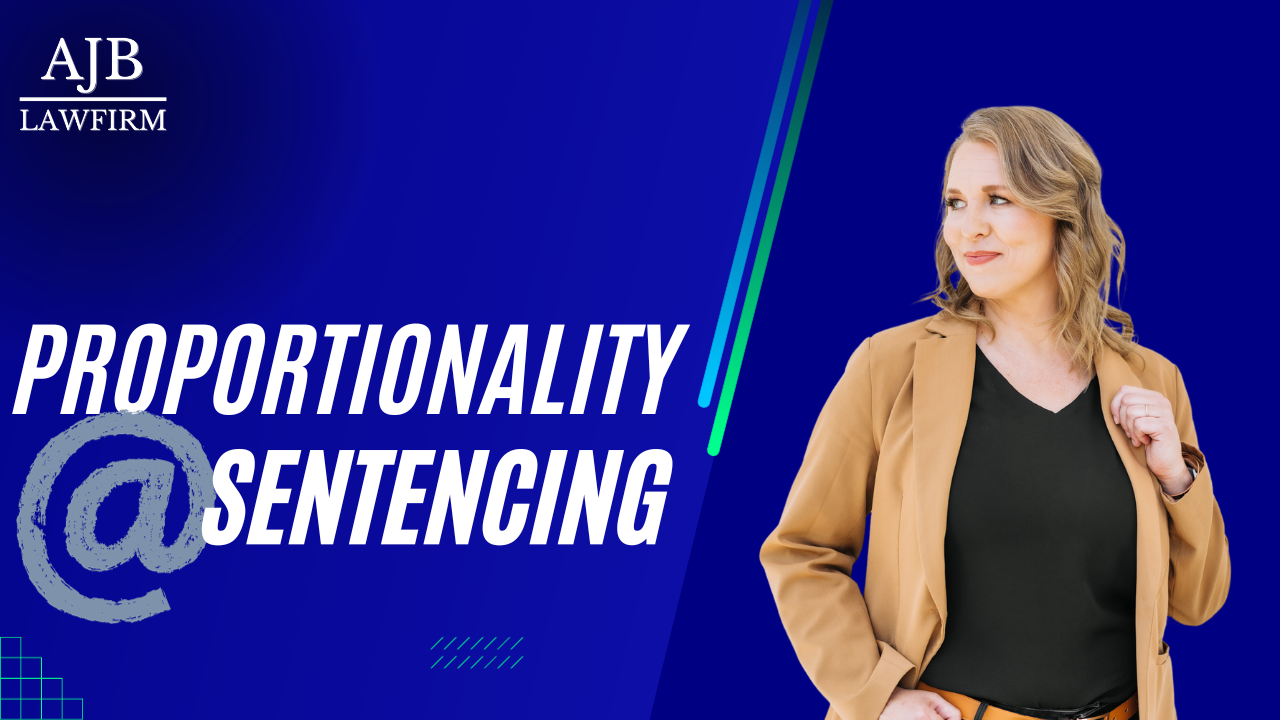Proportionality Arguments at Sentencing
When you or your loved one faces criminal charges, navigating the complex legal system can be daunting. At AJB Law Firm in Tucson, Arizona, under the guidance of Attorney Amanda Bynum, we understand the importance of a strategic defense that can make a significant difference in the outcome of your case. One crucial aspect of building a strong defense is making the argument for a lesser sentence. In this article, we will explore the intricacies of this legal strategy, discussing why someone who participated less in a crime should be given a lesser sentence. Whether you are seeking legal advice or simply interested in understanding the law, read on to gain insights into this critical aspect of criminal defense.
The Principle of Proportionality
One of the fundamental principles in criminal law is the concept of proportionality. This principle dictates that the punishment should be proportional to the degree of culpability or blameworthiness of the offender. In simpler terms, the severity of the punishment should align with the level of involvement and responsibility of the accused party.
Understanding Varying Degrees of Involvement
In criminal cases involving multiple offenders, it is not uncommon for individuals to have different levels of involvement in the alleged crime. Let's consider a hypothetical scenario to illustrate this point:
Suppose there is a robbery at a local business, and two individuals are charged. One is the mastermind behind the plan, carefully orchestrating the operation, while the other is an accomplice who was coerced into participating. In this scenario, it becomes crucial to recognize that the degree of culpability varies significantly between the mastermind and the coerced accomplice.
Justifications for a Lesser Sentence
Now, let's delve into some key reasons why a criminal defense attorney may argue for a lesser sentence for a client who played a lesser role in the alleged crime.
1. Moral Culpability
Moral culpability refers to an individual's degree of moral responsibility for their actions. In cases where a person had a lesser role or was coerced into participating, their moral culpability may be lower compared to others involved. This reduced moral culpability can serve as a valid argument for a lesser sentence.
2. Coercion or Duress
Individuals may sometimes find themselves in situations where they are forced or threatened into participating in criminal activities. When such coercion or duress can be substantiated, it may be a strong argument for leniency in sentencing. Legal defenses such as "under duress" or "necessity" may come into play in these cases.
3. Cooperation with Law Enforcement
If a defendant cooperates with law enforcement, providing valuable information or assistance that aids in the resolution of the case or the apprehension of other suspects, this cooperation can be a compelling reason for a reduced sentence. It demonstrates a willingness to take responsibility and make amends. However, this does not mean that an accused individual should ever cooperate with law enforcement before consulting with an attorney.
4. Lack of a Prior Criminal Record
A clean prior criminal record can be a significant mitigating factor when arguing for a lesser sentence. It suggests that the accused has not previously engaged in criminal behavior and may be less likely to reoffend.
The Role of a Skilled Criminal Defense Attorney
Successfully arguing for a lesser sentence requires a deep understanding of the law, comprehensive case analysis, and expert negotiation skills. A skilled criminal defense attorney, like Amanda Bynum at AJB Law Firm, can play a pivotal role in crafting a compelling defense strategy.
Preparing the Argument
Before making the argument for a lesser sentence, a criminal defense attorney must:
Gather and analyze all relevant evidence related to the crime, including witness statements, forensic evidence, and documents.
Evaluate the client's role, intentions, and any mitigating factors, such as coercion, duress, or lack of prior criminal record.
Conduct in-depth legal research to identify relevant statutes, sentencing guidelines, and case law.
Consult with experts, including psychologists or criminologists, to provide insights into the client's mental state or intent.
Negotiating a Plea Agreement
In some cases, negotiations with the prosecution may lead to a plea agreement that includes a reduced sentence. A skilled attorney can present compelling arguments based on the client's willingness to cooperate, potential for rehabilitation, and mitigating factors.
Preparing for Sentencing Hearings
When a plea agreement cannot be reached, the attorney must prepare for the sentencing hearing. This involves compiling all relevant evidence, witness statements, and expert testimonies to present a strong case for a reduced sentence. The attorney will also prepare the client for their statement during the hearing, emphasizing remorse and mitigating factors.
In criminal defense practice, advocating for a lesser sentence for a client who participated less in a crime is grounded in the principle of proportionality. The severity of the punishment should align with the individual's degree of culpability and moral blameworthiness.
If you or a loved one are facing criminal charges in Tucson, Arizona, and believe that a lesser sentence may be justified, it is imperative to consult with a skilled criminal defense attorney like Amanda Bynum at AJB Law Firm. Our team is dedicated to providing strategic legal counsel and fighting tirelessly for the best possible outcome for our clients. Contact us today to discuss your case and learn how we can help you navigate the complexities of the legal system. Your future may depend on it.
